Period Dramas
TV mini-series
TV mini-series

A Room With a View based on the novel by E.M. Forester Society girl Lucy Honeychurch and her chaperone embark on a tour of Europe in 1912 and meet a group of colorful characters and experience an adventure that will change Lucy's life forever. There are two screen adaptations: one starring Helen Bonham Carter and Maggie Smith and the other from PBS Masterpiece written by Andrew Davies. They are both very similar and tell the story o f a young woman's struggling with the expectations placed on a woman of her time and social status. The PBS version is framed as a flashback and moves the story along much more quickly. The Bonham Carter version is more cinematic and sweeping but it makes the story a bit more confusing. The PBS version is much more succinct. I'm not sure I really liked this story though. I think it could have been longer than the PBS version but shorter and more clear than the earlier version. I wanted to really feel for Lucy but neither movie gives much attention to developing her character and showing how she really feels. I think I would skip the movies and read the book instead if I could do it over.
f a young woman's struggling with the expectations placed on a woman of her time and social status. The PBS version is framed as a flashback and moves the story along much more quickly. The Bonham Carter version is more cinematic and sweeping but it makes the story a bit more confusing. The PBS version is much more succinct. I'm not sure I really liked this story though. I think it could have been longer than the PBS version but shorter and more clear than the earlier version. I wanted to really feel for Lucy but neither movie gives much attention to developing her character and showing how she really feels. I think I would skip the movies and read the book instead if I could do it over.
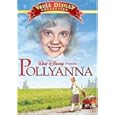
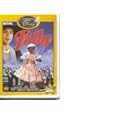 Pollyanna based on the novel by Eleanor H. Porter This story about an optimistic orphan has been loved by children for nearly 100 years. There are three movie versions I have seen: a classic Disney film featuring Haley Mills, a 1950s update starring Cosby kid Keisha Knight and Mrs. Huxatble herself, Phylicia Rashad and a PBS Masterpiece version which aired in 2005. Pollyanna comes to live with her wealthy, strict sp
Pollyanna based on the novel by Eleanor H. Porter This story about an optimistic orphan has been loved by children for nearly 100 years. There are three movie versions I have seen: a classic Disney film featuring Haley Mills, a 1950s update starring Cosby kid Keisha Knight and Mrs. Huxatble herself, Phylicia Rashad and a PBS Masterpiece version which aired in 2005. Pollyanna comes to live with her wealthy, strict sp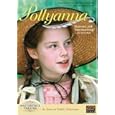 inster aunt Polly after the death of her missionary minister father. Pollyanna's cheerful optimism annoys her aunt but charms the stodgiest of townspeople. When tragedy strikes Pollyanna, the townspeople, and Aunt Polly, realize how much the little girl means to them. The PBS version moves the setting to Great Britain, but the core of the story remains the same. This Pollyanna reminds me a lot of Anne of Green Gables, another beloved early 20th century heroine. My favorite version is Polly, a toe tapping musical set in the 1950s against a backdrop of racial tension.
inster aunt Polly after the death of her missionary minister father. Pollyanna's cheerful optimism annoys her aunt but charms the stodgiest of townspeople. When tragedy strikes Pollyanna, the townspeople, and Aunt Polly, realize how much the little girl means to them. The PBS version moves the setting to Great Britain, but the core of the story remains the same. This Pollyanna reminds me a lot of Anne of Green Gables, another beloved early 20th century heroine. My favorite version is Polly, a toe tapping musical set in the 1950s against a backdrop of racial tension.
He Kn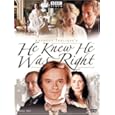 ew He Was Right based on a novel by Anthony Trollope
ew He Was Right based on a novel by Anthony Trollope
Set in the mid-19th century, this drama revolves around the wealthy Louis Trevelayn and his beautiful wife Emily. When Emily's rakish godfather, Col. Osborne arrives for a visit, Louis forbids his wife to see him and spirited Emily disobeys him which sets off Louis into a fit of jealously and as the plot thickens, Louis descends into madness. This is an extemely depressing period drama. The acting was excellent but I didn't care for the dark storyline.
Under the Greenwood Tree based on a novel by Thomas Hardy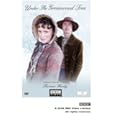
Set in a small English village in the 19th century, new school teacher Fancy Day is the subject of much attention and the object of a romantic rivalry. This story is very cheerful for Hardy but rather slow and uninteresting and unmemorable.
Da niel Deronda based on a novel by George Eliot
niel Deronda based on a novel by George Eliot
The title character is a young man in Victorian England searching for a purpose in life. His quest brings him to the rescue of a young Jewish woman and the search for her family which leads him to unexpected places as his own story becomes intertwined with Mirah's. A secondary story arc deals with the beautiful and spoiled Gwendolen whose family is in reduced circumstances. Gwendolen needs to marry well in order to help her family but she doesn't wish to marry. When her family's circumstances become more dire, she is forced into marriage with the proud, cold Henleigh Grandcourt. Tragic circumstances cause the young protaginists to grow up and discover who they are and who they want to be. While the costumes in this production are very lavish and beautiful, the story left me somewhat confused. Much of the story centers around Jews, yet their history and treatment in London is never fully explained and I was confused. Gwendolen is entirely unlikeable though marvelously acted by Romola Garai. Mirah was not a fleshed out enough character to like or dislike and I thought Daniel was rather broodish and unappealing. Perhaps this is a story better left on the page.
The Way We Live Now based on a novel by Anthony Trollope
When Eastern European finance wizard A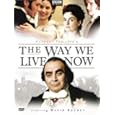 ugustus Melmotte arrives with his timid wife and heiress daughter in the most fashionable part of London he causes quite a stir. The young Sir Felix Carbury, having lost much of the dwindling family fortune, decides to court Melmotte's daughter, whom he expects will succumb easily to his charms. Marie Melmotte falls into his arms and into love but she has a mind of her own and grand schemes to get revenge on her oppressive father. Carbury isn't so sure he wants to go along with Marie's plans. Lord Carbury's sister Hetta is also of marriageble age and has her own romantic dilema choosing between her kindly older relative Roger and handsome businessman Paul Montague. As Hetta becomes more enamoured with Paul, his fierce Southern belle American fiance shows up in London to make trouble. Paul and his American business partner approach Melmotte with a plan for a railway in America and Melmotte takes charge of the shares. A subplot revolves around the spoiled, bratty Georgiana Longestaffe who is desperate for a London husband and also becomes entangled with the Melmottes. Soon the enitre upper crust of London is involved with Melmotte for better or for worse! This is an amusing and modern look at the desire for money and how it affects people. There are some really great funny moments involving Marie Melmotte, played by Shirley Henderson (Harry Potter's Moaning Myrtle) and Lord Felix Carbury played by Matthew McFadyen (Mr. Darcy). There are also darker and more dramatic moments and a predictable end for Melmotte but I enjoyed this production.
ugustus Melmotte arrives with his timid wife and heiress daughter in the most fashionable part of London he causes quite a stir. The young Sir Felix Carbury, having lost much of the dwindling family fortune, decides to court Melmotte's daughter, whom he expects will succumb easily to his charms. Marie Melmotte falls into his arms and into love but she has a mind of her own and grand schemes to get revenge on her oppressive father. Carbury isn't so sure he wants to go along with Marie's plans. Lord Carbury's sister Hetta is also of marriageble age and has her own romantic dilema choosing between her kindly older relative Roger and handsome businessman Paul Montague. As Hetta becomes more enamoured with Paul, his fierce Southern belle American fiance shows up in London to make trouble. Paul and his American business partner approach Melmotte with a plan for a railway in America and Melmotte takes charge of the shares. A subplot revolves around the spoiled, bratty Georgiana Longestaffe who is desperate for a London husband and also becomes entangled with the Melmottes. Soon the enitre upper crust of London is involved with Melmotte for better or for worse! This is an amusing and modern look at the desire for money and how it affects people. There are some really great funny moments involving Marie Melmotte, played by Shirley Henderson (Harry Potter's Moaning Myrtle) and Lord Felix Carbury played by Matthew McFadyen (Mr. Darcy). There are also darker and more dramatic moments and a predictable end for Melmotte but I enjoyed this production.
Wives and Daughters based on a novel by Elizabeth Gaskell
and Daughters based on a novel by Elizabeth Gaskell
Set in the pre-Victorian English countryside, Molly Gibson is happy being the daughter of a country doctor, caring for her father and being kind to the neighbors. Her world changes for good when her father brings home a new wife, a former governess with a beautiful, polished daughter Molly's age. Molly learns to deal with bitter unhappiness and life's unfairness for the first time as her social climbing step-mother and dashing step-sister turn Molly's life around by bringing romance, scandal and intregue into Molly's previously sheltered life. I found Molly to be a dull heroine. She was too nice for my tastes and too passive, though I didn't like her step-sister either because she was too flighty. Molly's step-mother was awful and I felt bad for Molly and Mr. Gibson was a typical clueless man who let his wife take charge and take over. I was really interested in the plot involving Squire Hamley and his two sons. The Squire was marvellously acted by Michael Gambon (Best known to me for inadequately playing Harry Potter's Dumbledore). Mr. Gambon is the stand out in this production. Another wonderful actor is Tom Hollander as Osborne Hamley. Osborne is the black sheep of the family with a deep secret that will change the way the viewer sees him. He was my favorite character. This mini-series is well worth watching for the fine acting and pretty dresses. The plot was good in some parts and uninteresting in others.
Lorna Do one based on a novel by R.D. Blackmore
one based on a novel by R.D. Blackmore
Romeo and Juliet set in 17th century Scotland! Farmer Jack Ridd is murdered in front of his young son by the lawless Doones, a former noble family in exile who are a law unto themselves. When young John nearly drowns while out fishing he is rescued by a beautiful girl and the two become friends. John can not get the beautiful girl out of his head. When the former friends become reaquainted many years later, they fall passionately in love. Unfortunately for John, his newfound love is none other than the granddaughter, and future queen of the Doone clan. John takes it upon himself to rescue Lorna from an unwanted marriage with her evil kinsman and learn the secrets her family has been keeping from her. Set during a time of religious turmoil, the subplot revolves around the war between Protestants and Catholics. Much of the mini-series is also taken up with the lives of John's family and friends on the farm and their feelings towards his relationship with Lorna. This story resembles Romeo & Juliet in nature and in violence. The scenery is gorgeous and the music is beautiful and haunting. I liked this mini-series but not knowing about the politics of the time took a little bit away from the story. The love story has many twists and turns and needs a box of Kleenex before it's all over!
North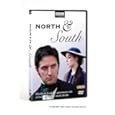 and South based on a novel by Elizabeth Gaskell
and South based on a novel by Elizabeth Gaskell
Pride and Prejudice set in northern industrial England during the mid-19th century. Margaret Hale and her parents move from the idyllic countryside of southern England to the industrial northern city when her clergyman father can no longer agree with the established religious doctrine. The Hales have a difficult time adapting to the gritty industrial city. The only other women of their social class are the mother and sister of John Thorton, a local factory owner. Margaret takes Mr. Thorton into immediate dislike and is prejudiced against the north and northerners. The Thortons are proud of their middle-class origins and Mr. Thorton is a tough businessman. Margaret tries to help the poor factory workers by performing good works as her religious beliefs tell her to do. She befriends a local girl who works in Mr. Thor ton's mill and her predjudices begin to be chipped away. The workers are unhappy with the way they are being treated and in this pre-union age they resort to mob rule to deal with their problems. Margaret soon finds herself in the middle of an industrial problem and the middle of a romance she doesn't even suspect. In the end, the tables are turned and Margaret becomes the businesswoman and takes control of their professional and personal relationships, which I greatly admire and appreciate. No simpering misses in this story! I love love loved this production! I don't remember the novel being so much of a love story or following the Pride and Prejudce model so I think the screenwriter enhanced the plot a little. It doesn't detract from the modern issues between the mill owners and mill workers. This story educates and informs as well as entertains. The romance is an added bonus, especially since Mr. Thorton resembles Mr. Darcy and is quite good looking with piercing blue eyes - a proper romantic hero!
ton's mill and her predjudices begin to be chipped away. The workers are unhappy with the way they are being treated and in this pre-union age they resort to mob rule to deal with their problems. Margaret soon finds herself in the middle of an industrial problem and the middle of a romance she doesn't even suspect. In the end, the tables are turned and Margaret becomes the businesswoman and takes control of their professional and personal relationships, which I greatly admire and appreciate. No simpering misses in this story! I love love loved this production! I don't remember the novel being so much of a love story or following the Pride and Prejudce model so I think the screenwriter enhanced the plot a little. It doesn't detract from the modern issues between the mill owners and mill workers. This story educates and informs as well as entertains. The romance is an added bonus, especially since Mr. Thorton resembles Mr. Darcy and is quite good looking with piercing blue eyes - a proper romantic hero!
 f a young woman's struggling with the expectations placed on a woman of her time and social status. The PBS version is framed as a flashback and moves the story along much more quickly. The Bonham Carter version is more cinematic and sweeping but it makes the story a bit more confusing. The PBS version is much more succinct. I'm not sure I really liked this story though. I think it could have been longer than the PBS version but shorter and more clear than the earlier version. I wanted to really feel for Lucy but neither movie gives much attention to developing her character and showing how she really feels. I think I would skip the movies and read the book instead if I could do it over.
f a young woman's struggling with the expectations placed on a woman of her time and social status. The PBS version is framed as a flashback and moves the story along much more quickly. The Bonham Carter version is more cinematic and sweeping but it makes the story a bit more confusing. The PBS version is much more succinct. I'm not sure I really liked this story though. I think it could have been longer than the PBS version but shorter and more clear than the earlier version. I wanted to really feel for Lucy but neither movie gives much attention to developing her character and showing how she really feels. I think I would skip the movies and read the book instead if I could do it over.
 Pollyanna based on the novel by Eleanor H. Porter This story about an optimistic orphan has been loved by children for nearly 100 years. There are three movie versions I have seen: a classic Disney film featuring Haley Mills, a 1950s update starring Cosby kid Keisha Knight and Mrs. Huxatble herself, Phylicia Rashad and a PBS Masterpiece version which aired in 2005. Pollyanna comes to live with her wealthy, strict sp
Pollyanna based on the novel by Eleanor H. Porter This story about an optimistic orphan has been loved by children for nearly 100 years. There are three movie versions I have seen: a classic Disney film featuring Haley Mills, a 1950s update starring Cosby kid Keisha Knight and Mrs. Huxatble herself, Phylicia Rashad and a PBS Masterpiece version which aired in 2005. Pollyanna comes to live with her wealthy, strict sp inster aunt Polly after the death of her missionary minister father. Pollyanna's cheerful optimism annoys her aunt but charms the stodgiest of townspeople. When tragedy strikes Pollyanna, the townspeople, and Aunt Polly, realize how much the little girl means to them. The PBS version moves the setting to Great Britain, but the core of the story remains the same. This Pollyanna reminds me a lot of Anne of Green Gables, another beloved early 20th century heroine. My favorite version is Polly, a toe tapping musical set in the 1950s against a backdrop of racial tension.
inster aunt Polly after the death of her missionary minister father. Pollyanna's cheerful optimism annoys her aunt but charms the stodgiest of townspeople. When tragedy strikes Pollyanna, the townspeople, and Aunt Polly, realize how much the little girl means to them. The PBS version moves the setting to Great Britain, but the core of the story remains the same. This Pollyanna reminds me a lot of Anne of Green Gables, another beloved early 20th century heroine. My favorite version is Polly, a toe tapping musical set in the 1950s against a backdrop of racial tension.He Kn
 ew He Was Right based on a novel by Anthony Trollope
ew He Was Right based on a novel by Anthony Trollope Set in the mid-19th century, this drama revolves around the wealthy Louis Trevelayn and his beautiful wife Emily. When Emily's rakish godfather, Col. Osborne arrives for a visit, Louis forbids his wife to see him and spirited Emily disobeys him which sets off Louis into a fit of jealously and as the plot thickens, Louis descends into madness. This is an extemely depressing period drama. The acting was excellent but I didn't care for the dark storyline.
Under the Greenwood Tree based on a novel by Thomas Hardy

Set in a small English village in the 19th century, new school teacher Fancy Day is the subject of much attention and the object of a romantic rivalry. This story is very cheerful for Hardy but rather slow and uninteresting and unmemorable.
Da
 niel Deronda based on a novel by George Eliot
niel Deronda based on a novel by George Eliot The title character is a young man in Victorian England searching for a purpose in life. His quest brings him to the rescue of a young Jewish woman and the search for her family which leads him to unexpected places as his own story becomes intertwined with Mirah's. A secondary story arc deals with the beautiful and spoiled Gwendolen whose family is in reduced circumstances. Gwendolen needs to marry well in order to help her family but she doesn't wish to marry. When her family's circumstances become more dire, she is forced into marriage with the proud, cold Henleigh Grandcourt. Tragic circumstances cause the young protaginists to grow up and discover who they are and who they want to be. While the costumes in this production are very lavish and beautiful, the story left me somewhat confused. Much of the story centers around Jews, yet their history and treatment in London is never fully explained and I was confused. Gwendolen is entirely unlikeable though marvelously acted by Romola Garai. Mirah was not a fleshed out enough character to like or dislike and I thought Daniel was rather broodish and unappealing. Perhaps this is a story better left on the page.
The Way We Live Now based on a novel by Anthony Trollope
When Eastern European finance wizard A
 ugustus Melmotte arrives with his timid wife and heiress daughter in the most fashionable part of London he causes quite a stir. The young Sir Felix Carbury, having lost much of the dwindling family fortune, decides to court Melmotte's daughter, whom he expects will succumb easily to his charms. Marie Melmotte falls into his arms and into love but she has a mind of her own and grand schemes to get revenge on her oppressive father. Carbury isn't so sure he wants to go along with Marie's plans. Lord Carbury's sister Hetta is also of marriageble age and has her own romantic dilema choosing between her kindly older relative Roger and handsome businessman Paul Montague. As Hetta becomes more enamoured with Paul, his fierce Southern belle American fiance shows up in London to make trouble. Paul and his American business partner approach Melmotte with a plan for a railway in America and Melmotte takes charge of the shares. A subplot revolves around the spoiled, bratty Georgiana Longestaffe who is desperate for a London husband and also becomes entangled with the Melmottes. Soon the enitre upper crust of London is involved with Melmotte for better or for worse! This is an amusing and modern look at the desire for money and how it affects people. There are some really great funny moments involving Marie Melmotte, played by Shirley Henderson (Harry Potter's Moaning Myrtle) and Lord Felix Carbury played by Matthew McFadyen (Mr. Darcy). There are also darker and more dramatic moments and a predictable end for Melmotte but I enjoyed this production.
ugustus Melmotte arrives with his timid wife and heiress daughter in the most fashionable part of London he causes quite a stir. The young Sir Felix Carbury, having lost much of the dwindling family fortune, decides to court Melmotte's daughter, whom he expects will succumb easily to his charms. Marie Melmotte falls into his arms and into love but she has a mind of her own and grand schemes to get revenge on her oppressive father. Carbury isn't so sure he wants to go along with Marie's plans. Lord Carbury's sister Hetta is also of marriageble age and has her own romantic dilema choosing between her kindly older relative Roger and handsome businessman Paul Montague. As Hetta becomes more enamoured with Paul, his fierce Southern belle American fiance shows up in London to make trouble. Paul and his American business partner approach Melmotte with a plan for a railway in America and Melmotte takes charge of the shares. A subplot revolves around the spoiled, bratty Georgiana Longestaffe who is desperate for a London husband and also becomes entangled with the Melmottes. Soon the enitre upper crust of London is involved with Melmotte for better or for worse! This is an amusing and modern look at the desire for money and how it affects people. There are some really great funny moments involving Marie Melmotte, played by Shirley Henderson (Harry Potter's Moaning Myrtle) and Lord Felix Carbury played by Matthew McFadyen (Mr. Darcy). There are also darker and more dramatic moments and a predictable end for Melmotte but I enjoyed this production.Wives
 and Daughters based on a novel by Elizabeth Gaskell
and Daughters based on a novel by Elizabeth Gaskell Set in the pre-Victorian English countryside, Molly Gibson is happy being the daughter of a country doctor, caring for her father and being kind to the neighbors. Her world changes for good when her father brings home a new wife, a former governess with a beautiful, polished daughter Molly's age. Molly learns to deal with bitter unhappiness and life's unfairness for the first time as her social climbing step-mother and dashing step-sister turn Molly's life around by bringing romance, scandal and intregue into Molly's previously sheltered life. I found Molly to be a dull heroine. She was too nice for my tastes and too passive, though I didn't like her step-sister either because she was too flighty. Molly's step-mother was awful and I felt bad for Molly and Mr. Gibson was a typical clueless man who let his wife take charge and take over. I was really interested in the plot involving Squire Hamley and his two sons. The Squire was marvellously acted by Michael Gambon (Best known to me for inadequately playing Harry Potter's Dumbledore). Mr. Gambon is the stand out in this production. Another wonderful actor is Tom Hollander as Osborne Hamley. Osborne is the black sheep of the family with a deep secret that will change the way the viewer sees him. He was my favorite character. This mini-series is well worth watching for the fine acting and pretty dresses. The plot was good in some parts and uninteresting in others.
Lorna Do
 one based on a novel by R.D. Blackmore
one based on a novel by R.D. BlackmoreRomeo and Juliet set in 17th century Scotland! Farmer Jack Ridd is murdered in front of his young son by the lawless Doones, a former noble family in exile who are a law unto themselves. When young John nearly drowns while out fishing he is rescued by a beautiful girl and the two become friends. John can not get the beautiful girl out of his head. When the former friends become reaquainted many years later, they fall passionately in love. Unfortunately for John, his newfound love is none other than the granddaughter, and future queen of the Doone clan. John takes it upon himself to rescue Lorna from an unwanted marriage with her evil kinsman and learn the secrets her family has been keeping from her. Set during a time of religious turmoil, the subplot revolves around the war between Protestants and Catholics. Much of the mini-series is also taken up with the lives of John's family and friends on the farm and their feelings towards his relationship with Lorna. This story resembles Romeo & Juliet in nature and in violence. The scenery is gorgeous and the music is beautiful and haunting. I liked this mini-series but not knowing about the politics of the time took a little bit away from the story. The love story has many twists and turns and needs a box of Kleenex before it's all over!
North
 and South based on a novel by Elizabeth Gaskell
and South based on a novel by Elizabeth Gaskell Pride and Prejudice set in northern industrial England during the mid-19th century. Margaret Hale and her parents move from the idyllic countryside of southern England to the industrial northern city when her clergyman father can no longer agree with the established religious doctrine. The Hales have a difficult time adapting to the gritty industrial city. The only other women of their social class are the mother and sister of John Thorton, a local factory owner. Margaret takes Mr. Thorton into immediate dislike and is prejudiced against the north and northerners. The Thortons are proud of their middle-class origins and Mr. Thorton is a tough businessman. Margaret tries to help the poor factory workers by performing good works as her religious beliefs tell her to do. She befriends a local girl who works in Mr. Thor
 ton's mill and her predjudices begin to be chipped away. The workers are unhappy with the way they are being treated and in this pre-union age they resort to mob rule to deal with their problems. Margaret soon finds herself in the middle of an industrial problem and the middle of a romance she doesn't even suspect. In the end, the tables are turned and Margaret becomes the businesswoman and takes control of their professional and personal relationships, which I greatly admire and appreciate. No simpering misses in this story! I love love loved this production! I don't remember the novel being so much of a love story or following the Pride and Prejudce model so I think the screenwriter enhanced the plot a little. It doesn't detract from the modern issues between the mill owners and mill workers. This story educates and informs as well as entertains. The romance is an added bonus, especially since Mr. Thorton resembles Mr. Darcy and is quite good looking with piercing blue eyes - a proper romantic hero!
ton's mill and her predjudices begin to be chipped away. The workers are unhappy with the way they are being treated and in this pre-union age they resort to mob rule to deal with their problems. Margaret soon finds herself in the middle of an industrial problem and the middle of a romance she doesn't even suspect. In the end, the tables are turned and Margaret becomes the businesswoman and takes control of their professional and personal relationships, which I greatly admire and appreciate. No simpering misses in this story! I love love loved this production! I don't remember the novel being so much of a love story or following the Pride and Prejudce model so I think the screenwriter enhanced the plot a little. It doesn't detract from the modern issues between the mill owners and mill workers. This story educates and informs as well as entertains. The romance is an added bonus, especially since Mr. Thorton resembles Mr. Darcy and is quite good looking with piercing blue eyes - a proper romantic hero!

No comments:
Post a Comment
Leave comments and or suggestions for QNPoohBear, the modern bluestocking.